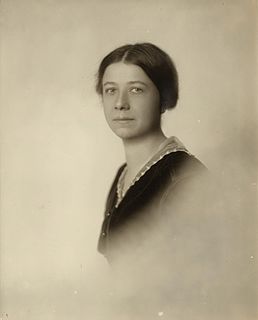A Quote by Ellen Key
The emancipation of women is practically the greatest egoistic movement of the nineteenth century, and the most intense affirmation of the right of the self that history has yet seen.
Related Quotes
In less than a century we experienced great movement. The youth movement! The labor movement! The civil rights movement! The peace movement! The solidarity movement! The women's movement! The disability movement! The disarmament movement! The gay rights movement! The environmental movement! Movement! Transformation! Is there any reason to believe we are done?
Nevertheless, what was made in the hope of transforming the world need not be rejected because it failed to do so – otherwise, one would also have to throw out a good deal of the greatest painting and poetry of the nineteenth century. An objective political failure can still work as a model of intellectual affirmation or dissent.
Given that the nineteenth century was the century of Socialism, of Liberalism, and of Democracy, it does not necessarily follow that the twentieth century must also be a century of Socialism, Liberalism and Democracy: political doctrines pass, but humanity remains, and it may rather be expected that this will be a century of authority ... a century of Fascism. For if the nineteenth century was a century of individualism it may be expected that this will be the century of collectivism and hence the century of the State.
Despite the modern dogma to the effect that women were a subject sex until the nineteenth century 'emancipated' them from history, women in history had demonstrated strong wills and purposes, had made assertions, and had directed or influenced all human destiny, including their own, since human life began.
If anything qualifies as an irony of history it would be this: that Marx and Engels throughout the nineteenth century wrote about America the United States as the great country of the future, of freedom and equality and a good life for the working man, and a country of revolution and emancipation, and of Russia as the great country of despotism, backwardness, savagery and superstition.
Most of what I read is for reviewing purposes or related to something I want to write about. It's slightly utilitarian. I definitely miss that sense of being a disinterested reader who's reading purely for the pleasure of imagining his way into emotional situations and vividly realized scenes in nineteenth-century France or late nineteenth-century Russia.
Taking photographs is generally an act of 'looking at the object, whereas 'being seen' or 'showing' is what is most interest to one who does a self-portrait...self-portraits deny not only photography itself but the 20th century as an era as well...an inevitable phenomenon at the end of the 20th century.
Whether we regard the Women's Liberation movement as a serious threat, a passing convulsion, or a fashionable idiocy, it is a movement that mounts an attack on practically everything that women value today and introduces the language and sentiments of political confrontation into the area of personal relationships.






































